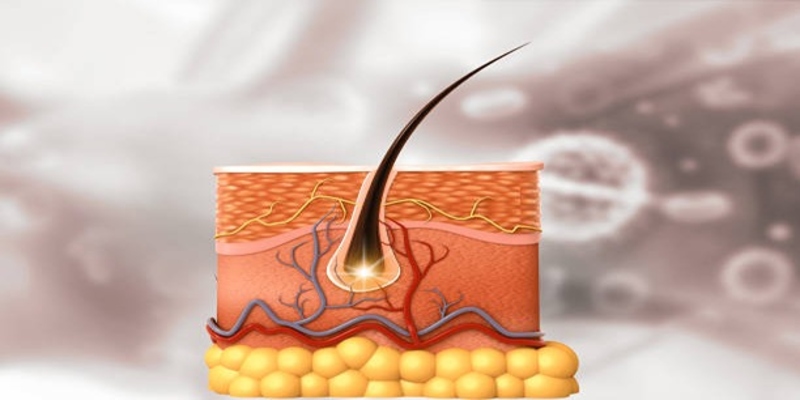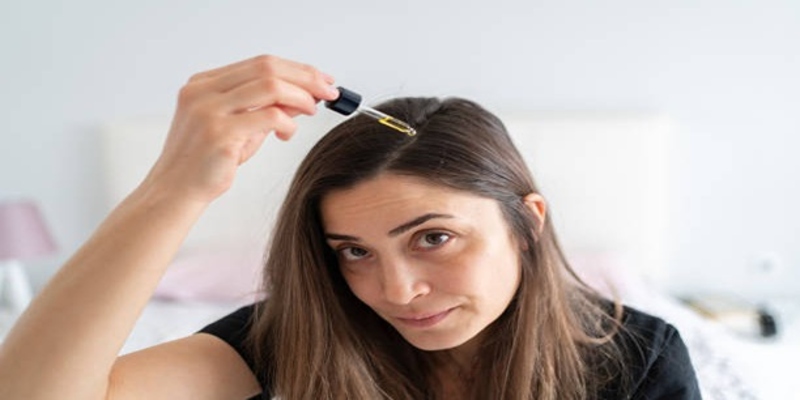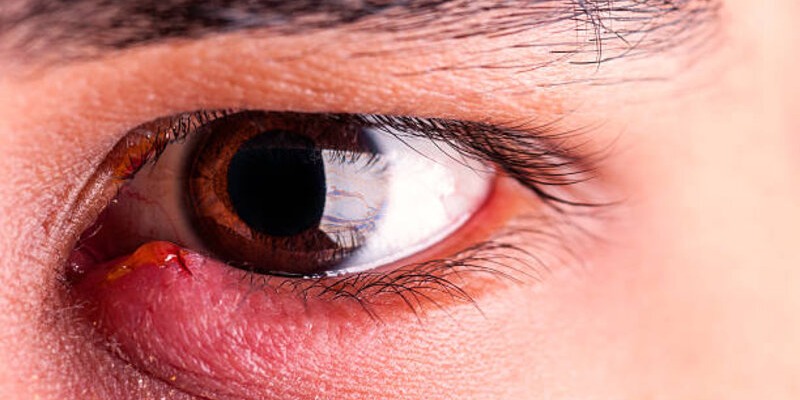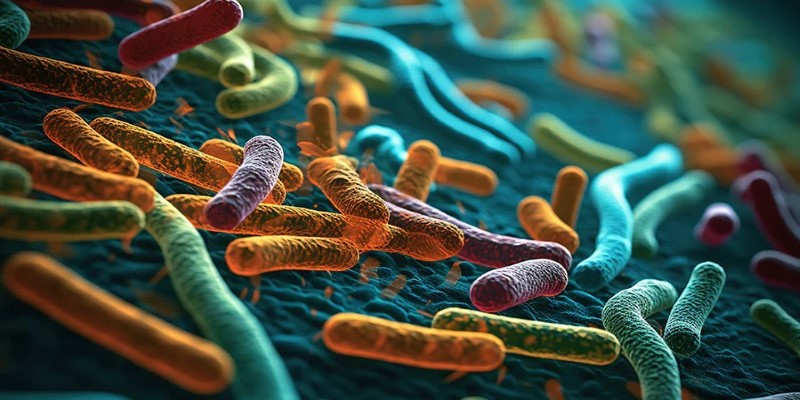Stress is often considered an invisible enemy, impacting various facets of our health with silent yet profound effects. Among its lesser-known victims are our hair and skin, parts of our body that visibly reflect the state of our inner health and emotions. Chronic stress can lead to a range of dermatological problems, including acne, dryness, and even premature aging, as it disrupts the delicate balance of hormones responsible for keeping our skin and hair in prime condition. Similarly, stress-induced hair issues can range from temporary hair loss to more severe conditions like alopecia. This document explores the intricate relationship between stress and our dermatological health, offering insights into how stress affects our skin and hair, and providing strategies for mitigation and care.
The Science Behind Stress and Dermatological Health;

When our body perceives stress, it releases a flurry of hormones, including cortisol, known as the "stress hormone." Cortisol's primary role in our body's stress response is to prepare us for a "fight or flight" situation. However, when we're in a state of constant stress, prolonged exposure to elevated cortisol levels can have detrimental effects. This hormonal imbalance affects the skin by reducing its ability to retain moisture, leading to dryness and irritation.
It can also exacerbate conditions like eczema or psoriasis. In terms of hair health, elevated cortisol can disrupt the normal hair cycle, triggering the shedding phase prematurely and resulting in noticeable hair loss. Understanding this physiological link underscores the importance of managing stress for both skin and hair care.
Identifying Stress-Related Skin Conditions:
While stress can manifest in different ways on our skin, some of the most common symptoms include acne, hives, and even hair loss. Acne is a prevalent condition triggered by stress hormones that stimulate sebum production. This excess oil clogs pores and leads to breakouts. With chronic stress, individuals may also experience chronic conditions like eczema or psoriasis, which can worsen due to stress. Hives or urticaria are another common manifestation of excessive stress, appearing as raised red welts on the skin. Finally, hair loss is often a tell-tale sign of chronic stress, with individuals experiencing sudden and unexplained shedding.
Hair Loss and Alopecia: Understanding the Stress Connection:
Hair loss, or alopecia, can manifest in various forms and affect men and women differently. Still, stress-induced hair loss is a common type that affects both genders equally. In most cases, stress-induced hair loss is temporary and reversible with proper management of stress levels. However, chronic stress can trigger a more severe condition called alopecia areata, where the immune system attacks hair follicles, leading to patchy hair loss. This condition is also known as spot baldness and can be triggered by prolonged stress or traumatic events.
The Hormonal Imbalance: Stress and Its Effects on the Body:
Chronic stress can lead to a cascade of hormonal imbalances that affect the entire body, including our skin and hair. As mentioned earlier, cortisol plays a significant role in this imbalance, but it is not the only hormone affected by stress. Stress also triggers an increase in androgens, male hormones responsible for oil production and acne breakouts. Additionally, elevated cortisol levels can disrupt the balance of estrogen, leading to dry and dull skin. This hormonal imbalance can also trigger hair loss by affecting the normal hair growth cycle.
Lifestyle Strategies for Managing Stress:
Adopting healthy lifestyle strategies is crucial for managing stress and mitigating its effects on skin and hair health. Regular physical exercise, for instance, is one of the most effective ways to reduce stress levels. It boosts endorphins, which are natural mood elevators and painkillers, thereby improving overall well-being.Maintaining a balanced diet rich in antioxidants can help combat the oxidative stress that exacerbates skin and hair conditions. Ensuring sufficient sleep is also vital, as it allows the body to repair and regenerate.
Mindfulness practices, such as meditation and yoga, can further assist in stress reduction, promoting a sense of calm and balance. Incorporating these lifestyle adjustments not only aids in stress management but also enhances the body's resilience against stress-related dermatological issues.
Holistic Approaches to Improve Skin and Hair Health:

In addition to lifestyle strategies, various holistic approaches can improve skin and hair health by reducing stress levels. Aromatherapy, for instance, uses essential oils extracted from plants to promote relaxation and reduce stress. Essential oils like lavender, chamomile, and rose have calming effects on the mind and body when used in diffusers or applied topically. Another holistic approach is acupuncture, which involves the insertion of thin needles into specific points on the body to stimulate nerve endings and promote relaxation. This ancient Chinese practice has been shown to reduce stress levels and improve overall well-being.
Real-Life Stories: Overcoming Stress-Induced Dermatological Issues:
Many individuals have successfully managed stress-induced dermatological issues by adopting lifestyle strategies and holistic approaches. For instance, a study published in the Journal of Investigative Dermatology found that meditation and yoga improved skin conditions like psoriasis and eczema in study participants. Similarly, a clinical trial showed that acupuncture significantly reduced symptoms of chronic urticaria or hives caused by stress. These success stories highlight the potential of holistic approaches in managing stress and improving skin and hair health.
Conclusion:
It is essential to understand the connection between stress and dermatological health to effectively manage the effects of stress on our skin and hair. By adopting healthy lifestyle strategies and incorporating holistic approaches, we can reduce stress levels and improve overall well-being. It is also crucial to address underlying stressors and seek professional help when necessary. With proper management, we can achieve healthier skin and hair while also promoting overall physical and mental wellness. So, let's prioritize our well-being and find ways to manage stress effectively for a happier, healthier life.







